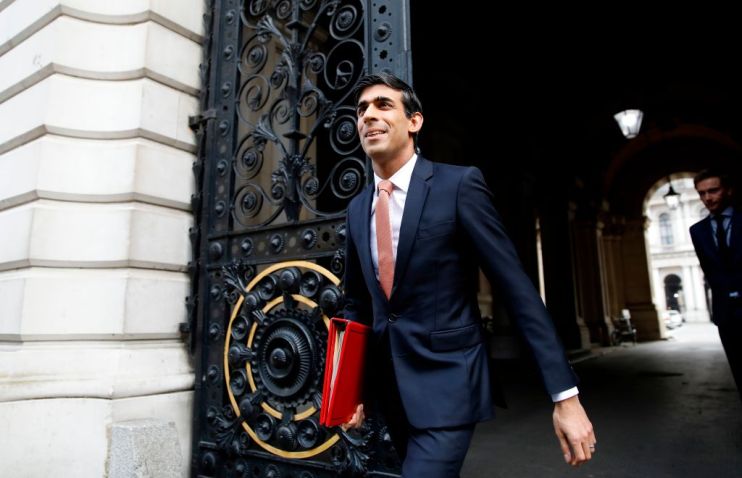Rishi Sunak can afford to be bold on pension reform in his autumn statement

Rishi Sunak’s summer economic statement was essentially an exercise in positivity.
The update, given by the chancellor two months ago, was mainly focused on helping Britain emerge from the coronavirus pandemic in decent shape. However, as with the various virus-related schemes announced in his spring Budget, his new initiatives to kickstart the economy come at an enormous cost.
Since the summer, there have been a flurry of tax and pension scare stories, as people frenzy over how the dent to public finances will be filled. In recent days, rumours regarding planned tax hikes have reached boiling point.
Proposals that are reportedly being considered by the Treasury include slashing pension tax relief, aligning capital gains tax with income tax, and raising fuel and other duties. All of these have undoubtedly caused a stir. However, no decisions have yet been made by the government.
There is no doubt that action is required. The Office for Budget Responsibility (OBR) recently said that the UK is set to record the largest annual GDP decline in 300 years. Based on their various modelling scenarios, output is predicted to fall by over 10 per cent in 2020, whilst borrowing is expected to exceed an eye-watering £300bn.
Somewhat ominously, the OBR continued, “…there will be a need to raise tax revenues and/or reduce spending to put the public finances on a sustainable path.”
Another statement is due from the chancellor in the autumn. Given the gravity of the UK’s economic situation, however, commentators expect this will be another Budget in all but name, and that numerous measures will be outlined to address the gaping deficit that covid-19 has caused.
Two questions immediately arise. Firstly, to what extent will Sunak use pension reform as a tool to help balance the books? Secondly, how bold will those reforms be?
By their very nature, as a long-term savings vehicle to help finance someone’s later life, pensions should be apolitical. However, the chancellor could take full advantage of where we currently are in the political cycle to adopt a radical approach to reforming and simplifying the pensions system.
The Conservative Party is still in its first year of a five year term, and has an 80-seat majority within parliament. Notwithstanding the pandemic, now is the time when the government is arguably at its strongest, and best placed, therefore, to announce significant and far-reaching changes.
Two areas for potential reform, already discussed at length, are the state pension triple-lock and pensions tax relief.
Indeed, after a pensions-lite spring Budget, several commentators (including myself) thought that both were firmly in the chancellor’s sights for the summer statement. Another reprieve in the autumn feels less likely.
In addition, reforming pensions would implicitly shift the system, so that the working young are not subsiding pensioners to the same degree as they have in the last decade, given that their careers and finances have suffered the most from covid-19.
Maintaining the triple-lock was a key pledge in the Conservative manifesto for last December’s election.
As with the pledges not to increase income tax, national insurance or VAT, however, the pandemic provides the chancellor with the ultimate excuse to renege on such promises. The impact of a plague on the country’s fortunes was not foreseen during last autumn’s hustings.
Indeed, an emboldened chancellor could go much further than the obvious low hanging fruit of scrapping the triple-lock, or introducing a flat rate of pensions tax relief for all.
Increasing the state pension age to 70, introducing a wealth tax, or a windfall tax on those companies who have benefited from lockdown are all potentially on the table.
Especially when a General Election is not expected to take place until 2024.
James Jones-Tinsley is a self-invested pensions technical specialist at Barnett Waddingham